Generative AI Development
Company
Turn Your Business Efficient with Intelligent
GenAI Solutions
What is Generative AI?
Generative AI is a category of artificial intelligence that can create new, original content—such as images, videos, music, or even text—without human intervention. Built on large-scale machine learning models, Generative AI learns from large amounts of data to understand underlying patterns and generate new examples that are similar to what it has seen. Gen AI can autonomously generate new content that mirrors the original examples, making it highly valuable in the creative industry, data analysis, research, and more.
Generative AI Challenges & Concerns
Generative AI presents challenges around dealing with legacy systems, addressing workforce adaptability, the quality of outputs, the risk of misuse, and its ability to disrupt traditional industries.
01
Technical Complexity
Generative AI models are highly complex, with billions or trillions of parameters, making them difficult for most businesses to handle. Training these models requires massive computing power, which can be expensive and environmentally harmful.
02
Legacy Systems
Using generative AI with older technology can cause problems. IT leaders must decide whether to update or replace old systems. Organizations must find ways to integrate new technologies or adopt new capabilities to achieve faster and better results.
03
Reshaping Workforce
Generative AI will change how work is done, which raises concerns about job losses. While AI might reduce specific jobs, it will also create new roles. Companies will need staff to oversee and improve AI-assisted customer experiences. This means employees will transition from doing tasks to training and enhancing AI systems.
04
Technical Debt
Companies must ensure that adopting generative AI leads to substantial changes and not just technical debt. Simply deploying AI models for customer support and reducing the workload is not enough. To justify the investment in AI, businesses should significantly optimally use the number of agents needed for each role.
05
AI Misuse and hallucinations
The increased use of generative AI models makes it easier for businesses and individuals to create content, but it also increases the risk of misuse. AI models can provide false information, known as "hallucinations," or hackers can use AI to create altered videos, voices, and artwork, which can be used for targeted attacks.
06
Legal concerns and algorithmic bias
Generative AI also raises legal concerns, particularly with regard to intellectual property and algorithmic bias. Furthermore, if AI models are trained on biased or incomplete data, they can produce prejudiced results, leading to discrimination and potential legal issues.
07
Coordination and oversight
To adopt generative AI effectively, organizations should set up a center of excellence to oversee its implementation and develop policies for its responsible use. This will help prevent misuse and ensure the technology is used responsibly across the organization.
Generative AI Expertise
Rather than one-size-fits-all software, Upsquaretech designs ERP software for small businesses and enterprises, tailored to their unique challenges. With expertise across multiple ERP platforms, such as Microsoft Dynamics, Oracle ERP, NetSuite, and more, we drive your business toward efficiency, scalability, and success.
Generative Models
Developing domain-specific generative models involves fine-tuning foundational models like GPT-4. Companies must understand their structure, training methods, and practical uses.
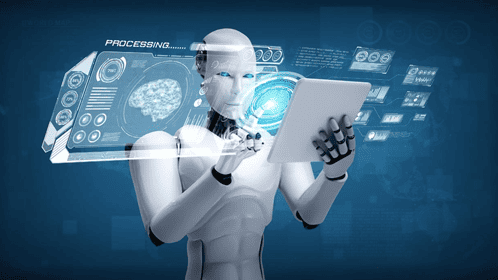
Natural Language Processing (NLP)
NLP techniques are used to create applications for tasks like generating text, analyzing sentiment, summarizing content, and translating languages.

Machine Learning
Using various machine learning methods, such as supervised, unsupervised, and reinforcement learning, allows for adaptable solutions that meet a wide range of business needs.

Deep Learning
Deep learning expertise involves working with advanced neural networks and algorithms to create custom solutions that maximize AI's potential.
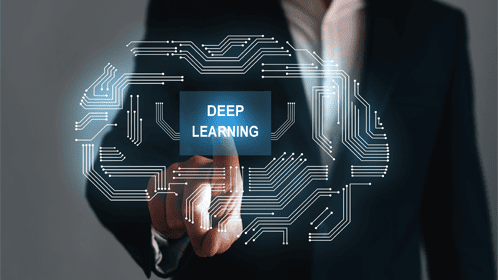
Data Collection and Annotation
Preparing high-quality data for training models includes collecting and annotating large datasets, which is a key step in building effective AI systems.

Model Fine-tuning
Fine-tuning pre-trained models, like GPT-4, makes them more suitable for specific tasks or industries, enabling flexible and targeted AI solutions.

Generative AI
Services & Solutions
Generative AI combines advanced machine learning techniques with a deep understanding of specific requirements, enabling the development of creative and intelligent systems. With the guidance of an expert GenAI consulting agency, companies can build solutions that can streamline processes and enhance decision-making.
Generative AI Strategy
Developing a strategy for generative AI adoption involves tailoring the approach to align with organizational goals. This process combines technical expertise with a deep understanding of generative AI models and technologies to identify and implement solutions that address specific needs.
Data Analysis
Extracting valuable insights from structured data and unstructured text requires skilled analysis to uncover patterns and provide actionable recommendations. Processing and examination of data enable informed decision-making and the identification of meaningful trends.
Custom Model Development
Building domain-specific generative AI models involves assessing industry requirements and business objectives. This process includes selecting an appropriate foundational model, fine-tuning it using proprietary data, and conducting thorough testing to ensure it meets defined goals.
Generative AI Solutions
Generative AI systems, such as chatbots, AI assistants, and recommendation engines, are designed to tackle complex challenges with innovative methods. These systems leverage advanced foundational models to deliver adaptable and context-aware solutions that address various use cases effectively.
Generative AI Integration
Integrating generative AI into existing technology frameworks ensures seamless incorporation into workflows and customer-facing systems. A thoughtful approach to integration minimizes disruption while optimizing operations and adapting to technological advancements.
Ongoing Support and Maintenance
Post-deployment maintenance and upgrades ensure that generative AI systems remain effective and aligned with changing business needs. Regular updates help sustain smooth operation, deliver consistent value, and adapt to the dynamic nature of technology.
Imagine. Create. Transform.
Turn your ideas into intelligent AI-driven solutions with generative AI expertise.
Generative AI Industry Insights
From blogs to case studies, gain valuable insights into how businesses leverage technology to drive innovation, streamline operations, and create new growth opportunities.
The Rise of Generative AI Startups: Trends to Watch
Explore how generative AI is empowering startups to innovate rapidly, reduce costs, and disrupt industries. This article delves into key 2025 trends, including the democratization of AI tools and the acceleration of product development.
A Complete Guide to Generative AI
This comprehensive guide covers the fundamentals of generative AI, its evolution, core mechanisms, and its transformative impact across industries. Learn how businesses can harness their potential responsibly and effectively.
Pros and Cons of Generative AI: A Comprehensive Guide
An in-depth analysis of the advantages and challenges of generative AI, examining its implications for various sectors, societal impact, and the future of employment.
Top 10 Generative AI Examples Changing Industries and Inspiring Innovation
Discover 10 real-world applications of generative AI across sectors like healthcare, education, manufacturing, and retail, showcasing how this technology is revolutionizing processes and enhancing creativity.
Conversational AI vs Generative AI: Choose the Right AI Strategy
This article compares conversational AI and generative AI, highlighting their distinct functionalities, use cases, and how they complement each other in various applications.
Generative AI Benefits
Generative AI offers transformative advantages by automating tasks, enhancing creativity, improving decision-making, and optimizing costs. It empowers businesses to develop innovative solutions, personalize user experiences, and stay ahead.
Increased Productivity
By enhancing team capabilities and streamlining workflows, generative AI enables quicker decision-making, better resource use, and faster results, helping organizations achieve more in less time.
Enhanced Creativity
Generative AI can inspire innovation by generating new ideas, content, and strategies, opening doors to fresh opportunities, and keeping businesses aligned with market trends.
Cost Optimization
Automating tasks and improving efficiency reduces operational costs while maintaining or improving product and service quality, helping businesses remain competitive.
Advanced Process Automation
Generative AI can automate repetitive tasks, allowing businesses to focus on innovation and strategic growth while improving efficiency across operations.
Enhanced Data Security
Generative AI can analyze data in real time to detect potential cyber threats and provide strong protection against breaches.
Better Decision-Making
Generative AI supports informed decision-making by solving complex problems, improving planning, and optimizing the use of resources.
Reduced Costs
Automating repetitive tasks with generative AI reduces expenses and frees up the workforce for more strategic roles, cutting costs without compromising results.
Generative AI Development Process
A structured approach to designing, building, and implementing generative AI solutions is the key to success. Gen AI solutions tailored to specific needs and seamless integration ensure innovation and continuous optimization.
Discovery & Strategy
Analyze business needs, goals, and challenges, followed by creating a roadmap based on market trends, competitor insights, and user expectations.
Prototyping & Development
Create interactive prototypes to validate the vision and gather feedback, then develop and train custom AI/ML solutions using relevant data and advanced algorithms.
Integration & Testing
Integrate the AI model into existing systems, rigorously test the solution, and resolve any issues to ensure seamless functionality.
Support & Optimization
Provide continuous support, monitor performance, ensure security, and optimize the solution to maintain efficiency and adapt to evolving needs.
Generative AI Tech Capabilities
Leverage advanced generative AI to transform workflows, boost productivity, improve customer satisfaction, and drive innovation.
AI Agent Development
Enhance customer support and boost engagement with enterprise AI agents powered by generative technology.
LLM-Powered Chatbots
Build customer trust and loyalty with custom AI chatbots that offer human-like conversations using large language models (LLM).
LLM Testing and Fine-Tuning
Continuously test and refine your AI system to improve its specific capabilities for your business needs.
GPT Integration
Upgrade your digital systems with generative AI while minimizing disruptions to your current processes.
Large Language Model Development
Build a custom Large Language Model (LLM) to generate human-like text for applications like chatbots, content creation, and more.
Transformer Model Development
Utilize Transformer models, a leading AI architecture, to generate high-quality results for tasks like translation, text generation, and more.
FAQs
How Generative AI Services Address Data Privacy and Security Concerns?
Generative AI ensures data privacy through encryption, access control, anonymization, and regulatory compliance (e.g., GDPR). Regular audits identify and address security gaps.
What are the best practices for integrating Generative AI into your business?
Align GenAI applications with business goals to ensure value generation. Use clean, ethical, and relevant data to train models effectively. Regularly assess AI performance and refine models based on real-world feedback. Engage AI experts and business teams to ensure smooth implementation and scaling.
What are the tips for integrating Generative AI into existing workflows?
Implement small-scale use cases in current software to validate AI effectiveness. Train your staff on AI capabilities for seamless workflow automation.
How does Generative AI help Organizations accelerate growth?
Generative AI boosts growth by automating tasks, speeding up innovation, and enabling scalable operations. It enhances decision-making with data-driven insights, reduces costs, and fosters creativity for new product development.
How Generative AI is driving economic change?
Generative AI drives economic change by increasing productivity, lowering operational costs, and enabling new business models. It creates new jobs in AI development and makes advanced technologies accessible to smaller businesses.
What are Generative AI trends?
Key trends include multimodal models (text, image, and audio), AI-driven personalization, synthetic data generation, and AI-assisted creativity in design, content, and healthcare. These trends are transforming industries and accelerating digital transformation.
What is Generative AI Performance Evaluation and Metrics?
Generative AI performance is evaluated using metrics like accuracy (alignment with expected results), creativity (novelty of outputs), efficiency (generation speed), and user engagement (response to AI-generated content). Data quality and bias mitigation are also critical in assessing the AI’s relevance and fairness.
Blogs
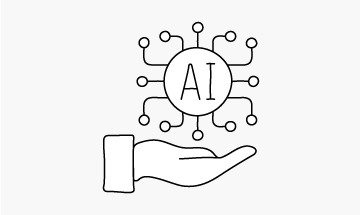
What Generative AI Means Generative AI refers to artificial intelligence
- Utpal Vaishnav
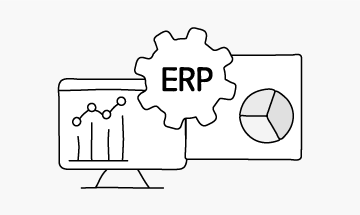
Selecting the proper enterprise resource planning (ERP) software is critical
- Utpal Vaishnav
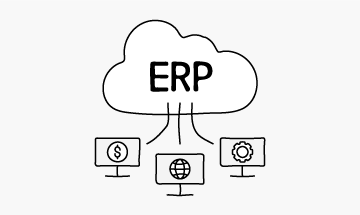
Implementing an Enterprise Resource Planning (ERP) system is a significant
- Utpal Vaishnav

What Generative AI Means Generative AI refers to artificial intelligence
- Utpal Vaishnav

Selecting the proper enterprise resource planning (ERP) software is critical
- Utpal Vaishnav

Implementing an Enterprise Resource Planning (ERP) system is a significant
- Utpal Vaishnav
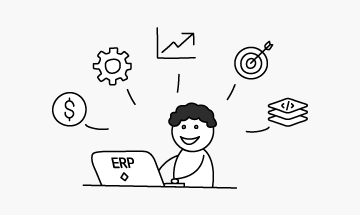
Enterprise Resource Planning (ERP) systems have become critical for organizational
- Utpal Vaishnav
Contact Us
India Office
3rd Floor, D Block, Satyam Corporate Square, SBR, Bodakdev, Ahmedabad, Gujarat 380054
Europe Office
Herengracht 449 A, 1017BR Amsterdam
Singapore Office
160 Robinson Road, #14-04 Singapore Business Federation Centre, Singapore 068914